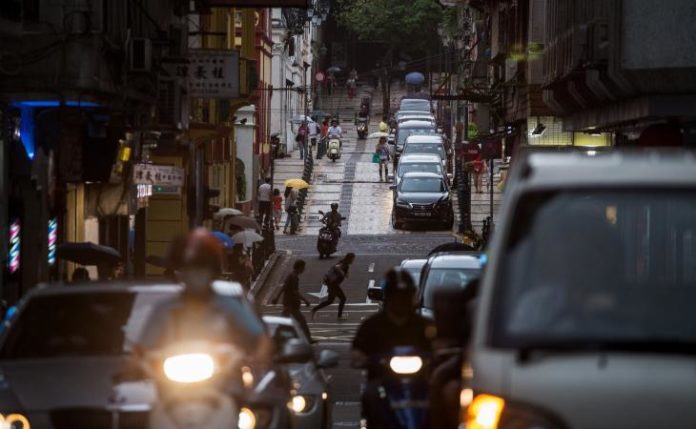Car dealerships in the SAR have seen their sales slashed by between 50 and 70 per cent since the implementation of a tax increase on new car imports came into effect in December of last year. Estimates given by Patrick Tse Ka Ming, president of the Macau Motor’s Association speaking to Business Daily before the implementation of the increase, anticipated a downturn of 30 per cent year-on-year, however sales in both the high-end luxury segment and the family segment have been worse than expected, with numbers being halved so far this year. “We can forecast that sales have decreased 50 per cent after the tax increment and economic trends – from 2015 up to this moment,” notes Gabriel Leong, a company representative speaking about the performance of Toyota’s products in the local market. Leong notes that the sector has seen decreases across all product ranges, with the Sedan and SUV (sports utility vehicle) types being the most hard hit by the changes. “The most effective range [best-selling] is from MOP300,000 to MOP600,000 – [that saw] the least decrease,” notes Leong. The bill, passed unanimously by the Legislative Assembly late last year, increases the tax on newly imported vehicles to between 40 and 72 per cent, compared to the previous 30 to 55 per cent. High-end down turn The higher potential for vehicle sales in the low to mid price range was confirmed by an employee of BMW. The employee mentioned that the group has seen better results from their 1 series and 3 series models – specifically the 120 and 320 models, which sell for around MOP300,000 pre-tax – with taxes reaching up to MOP120,000 depending on the vehicle. A representative of the company that distributes Maserati luxury vehicles in the territory told Business Daily that their business has also suffered in the wake of the tax hike. “Our car sales have dropped by some 70 per cent compared to before,” laments the representative. “Before we used to sell some ten cars a month and now the sales have dropped to some three cars a month.” The situation looks to quickly be becoming the norm, and as sales slide, so do imports. “We expect sales will stay at the same level for the rest of the year. Now, on average we import some three to four cars for showcases per month, which are mainly Japanese cars,” notes the Maserati representative – whose company also distributes other brands – seeing a shift in trend regarding consumers. “Before our major customers were people working inside casinos, but now they are mainly public servants, who primarily purchase Japanese cars. As such, not many people are buying Maserati anymore,” he states. Times a changing Maserati is not the only company to be feeling the pressure, as Mr. Leong notes that Toyota is also working to keep up with a shifting demographic. “Most people are local, there are no more [mainland] Chinese customers," he notes. Another representative of a local car importer commented that in regards to customers: “they are locals,” and that the company is focusing on smaller-size, family-oriented vehicles in order to make a profit. “For us we do not have two door cars now, so most of them are four door, and we do not have any six-seater cars – such as big family vehicles. All we do is small cars. Most families would like to have a small car,” notes the representative. The representative notes that in regards to declining imports based on car type, the group is taking a broader approach, saying: “we are changing the number of cars we import, all the models.” Overall however, the tax increase is not the only thing to blame for the drop in sales. “Before the customers come to buy a car, they will think of the parking,” says the representative: “they will find a parking [space] first before they come and buy a car. If not, most of them come to just have a look,” he says, adding that: “there is not enough parking in Macau.” As of May this year, the city had 119,078 registered vehicles according to official data, a 1.6 per cent year-on-year increase, in line with Secretary for Economy and Finance Lionel Leong’s goal to slow the current “5.54 per cent [increase in vehicles] every year,” Business Daily reported. Also in May, 998 new vehicle registrations were recorded, a 33 per cent drop year-on-year.
—
























